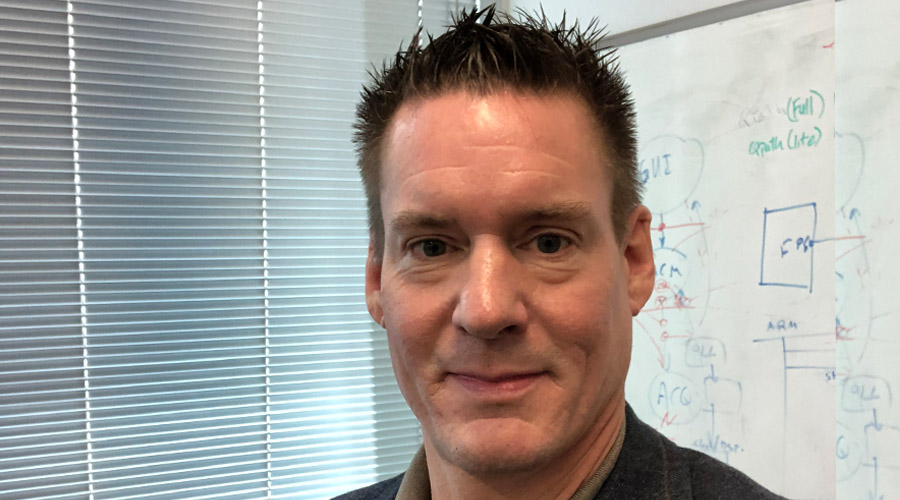
Glen Mclaughlin, Founder & President, ZONARE Medical Systems, Inc
We are living in an era where technology is advancing at a rapid pace, disrupting the existing business process and model. With advanced technologies spanning roots aggressively across several industries, it requires strong leadership with the agility and a drive to relentlessly rethink, reinvigorate, and reinvent to succeed in the business world. Ambitious and exemplary leaders with a firm grip over technology enable an organization to maintain an unrelenting enthusiasm for growth and innovation to stay relevant and thrive in this fast-paced world. Driven by a passion for technology, such avid entrepreneurs come up with innovative solutions to the existing problems and lead the company towards growth and success.
An entrepreneur by nature and a technologist by passion, Glen Mclaughlin is one such leader who is leading healthcare towards a tech-enabled future by unleashing the true potential of technology. Growing up in Silicon Valley, Glen was surrounded by innovators and tech-enthusiasts. Such an influential environment, the tech-conversation around the dinner table and tech-oriented events at his parent’s house during his formative years, evoked a passion for technology in Glen’s heart. Also, as Glen’s father was an entrepreneur, he eventually became interested in entrepreneurship and pursued his journey as a tech-entrepreneur.
The Initial Journey
Glen always felt that we all have an obligation to impact people’s lives in a positive manner and what better way than creating medical technologies that can help individuals in their most vulnerable and uncertain times. Fuelled by this vision, he commenced his entrepreneurial journey in 1999with the inception of ZONARE Medical System, a leading diagnostic ultrasound company in the high-end radiology segment.
In 2013, ZONARE was acquired by Mindray, a pioneering global provider of medical devices and solutions, and Glen was promoted to the role of Chief Product Officer in Mindray as well as President of the Mindray Innovation Center in Silicon Valley. In this role, Glen has been successfully managing the responsibility of not only evaluating new technologies but also creating them while ensuring that Mindray continues to maintain its technology leadership position.
The Unique Problem-Solving Approach of Mindray
The mission of Mindray is to advance medical technologies to make healthcare more accessible to all. In order to achieve this mission, the company first focuses on obtaining a deep understanding of the problems it is trying to solve and with that knowledge decide what technologies it needs to create to realize a true solution. Subsequently, it utilizes the solution to create a product that can be accessible to not only wealthy countries but also developing countries with extremely limited resources along with providing the physician, institution, and the patient peace of mind that they are providing or receiving the highest level of care.
“Technology plays a crucial role in executing this mission as its wise use can result in products that are higher in performance, more reliable, smaller, more efficient, and lower cost to produce,” affirms Glen.
While most of the companies these days are just focusing on replicating what others have created previously, Mindray focuses distinctively on how they can make a product better. Currently, it has 8 R&D centers worldwide employing over 2,500 engineers and scientists. The company has over 5,000 issued patents and commits over 10% of its annual revenue to R&D activities to ensure that it invests in maintaining its technical {advancement/lead}.
Understanding Customers at a Strategic Level
Glen’s success and growth to the global level can be traced back to his customer-centric and innovative approach. He emphasizes staying in touch with customers by not only communicating with the end-users but also by being in their settings to observe their daily needs.
“I have found that many people are very good about telling you what they like and dislike about a product but most are not able to extrapolate that further to provide their future needs or where there are struggling in their practice currently. The only way to get this information is to get out and visit them,” asserts Glen.
According to him, as much as people say they want to embrace new or cutting-edge technology, the medical community is actually relatively conservative in adopting technologies until thoroughly proven. As such the actual products that are introduced into the market tend to require that the innovators take a more incremental path by incorporating a subset of the desired changes over several iterations instead of presenting all the changes at once. This approach enables the physicians and patients to gradually embrace and become comfortable with the new technology over time.
Continues Leveraging Technology to Benefit Humanity
Moving into the future, Glen envisions the potential for tremendous advancements in medicine driven by AI, big data, virtual reality, augmented reality, advanced materials, and new sensor technologies. Being a technophile business leader, Glen aspires to continue to be at the forefront of not only creating such technology but actively translating them so that it can benefit humanity to the fullest. Passing on the key to success in his advice to future entrepreneurs, Glen says, “Always understand the problem you are trying to solve and make sure that it is a problem worth solving. The better you can define and deeply understand a problem or need the easier a solution becomes. Just focusing on technology for the sake of it rarely results in producing a solution that truly solves a problem.”In addition, Glen also suggests budding entrepreneurs invest in the right talent to ensure the best possibility of success. As a next step, he recommends making sure that everyone shares a clear vision of the problem in an organization.
“I am a big believer in doing what I can to give back to the future entrepreneurs as they are the ones who will be impacting people’s lives, with their healthcare creations, at a critical and vulnerable time resulting in making the world a better place for all going forward,” concludes Glen.
